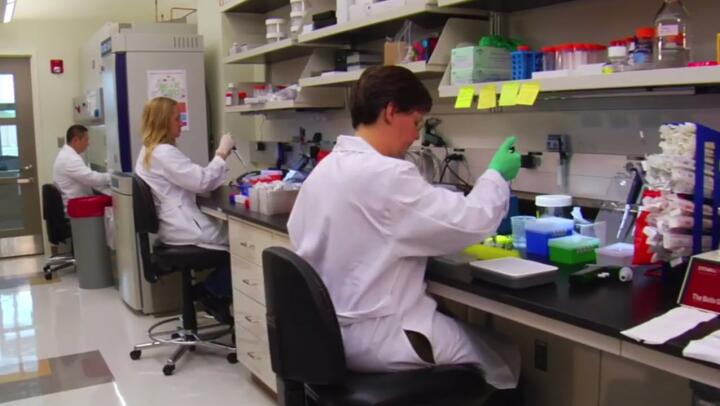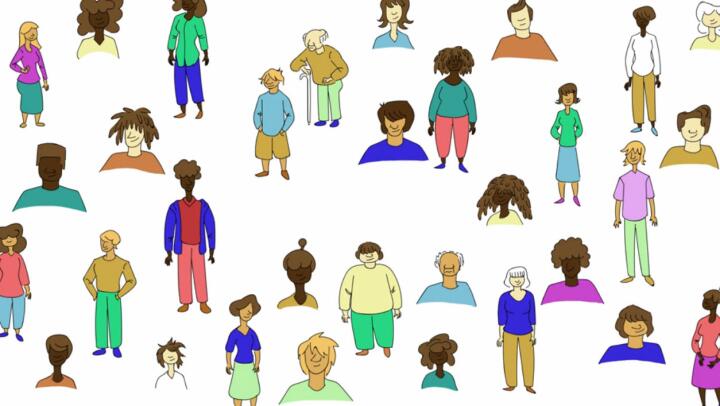
Most of the millions of people who live with hepatitis C don’t have any signs or symptoms of the liver disease, but some will experience stomach pain, nausea, loss of appetite, irritable bowel syndrome and other gastrointestinal woes. Some intestinal symptoms may be a result of the underlying hepatitis C infection or its treatment.
Hepatitis C is a viral disease marked by a slow, simmering inflammation of the liver. It can be mild and last for a few weeks or chronic, leading to serious liver disease and even death. Symptoms may begin one to three months after infection, but liver scarring and damage can take years to accrue.
How Does Hepatitis C Cause Stomach Troubles?
It’s important to understand what a healthy liver is tasked with doing to understand precisely how hepatitis C causes or aggravates intestinal symptoms. In response to the virus, the liver swells and gradually stops doing its very important jobs, which include processing nutrients, filtering your blood, and staving off infections. Bile—a greenish-brown fluid produced by the liver—aids in these tasks. Hepatitis C can cause any of the following intestinal problems.
Stomach Pain. Bile is stored in the gallbladder. When bile production is thwarted, inflammation of the gallbladder may occur, causing pain and cramping typically in the upper right abdomen. The liver also produces a protein called albumin. When production of albumin is impaired, there can be a build-up of fluid or ascites in the stomach, causing pain.
Nausea/Vomiting. It becomes hard for the intestines to absorb nutrients from food when bile production is compromised. This can cause a pronounced loss of appetite, nausea and/or vomiting.
Bathroom Changes. Your bowel movements (stool) get their brownish color from bile. If bile production is lagging, your stool may appear white or pale. This is a red flag that your liver isn’t healthy.
Irritable Bowel Syndrome (IBS). For all of these reasons, IBS—a gastrointestinal condition marked by chronic stomach pain, bloating, and changes in bowel habits—tends to be more common among people with hepatitis C. In fact, research suggests that 66% of people with hepatitis C have IBS, compared with just 18% of individuals without this liver disease. The more liver scarring there, the greater the risk of IBS among people with hepatitis, the study shows.
Is It Hepatitis C?
The best way to relieve these intestinal symptoms is to get tested for hepatitis C if you have any risk factors or symptoms and seek treatment if you test positive. Unlike other types of hepatitis, there is no vaccine for hepatitis C, but it is curable.
Hepatitis C is primarily spread through contact with blood from an infected person. This can occur via unprotected sexual activity, intravenous drug use, dialysis, and blood transfusions performed before there was universal screening of the blood supply. More than 75% of adults infected are baby boomers (born from 1945 through 1964), making this generation five times more likely to have hepatitis C than others. The federal Centers for Disease Control and Prevention (CDC) in Atlanta calls for all baby boomers to get tested for Hepatitis C.
Hepatitis C Meds and Your Stomach
Treating Hepatitis C to relieve your stomach pain, nausea, and bathroom problems can be a bit of a double-edged sword. Many of medications that treat hepatitis C may also contribute to intestinal woes. For example, certain antivirals such as interferon can cause nausea, abdominal pain, and diarrhea. Other drugs, too, including ribavirin, Incivek (telaprevir), or Victrelis (boceprevir), list intestinal symptoms as possible side effects on their labels. These symptoms should resolve once your course of treatment is completed. Ask your doctor if your hepatitis C medication could be responsible for your intestinal symptoms. He or she can help you troubleshoot by suggesting coping strategies.
These may include:
Avoiding spicy food or other types of cuisine that can trigger the symptoms.
Eating small meals frequently throughout the day.
Choosing bland, foods such as bananas, rice, applesauce, toast, and tea (the BRATT diet).
In some cases, additional medication may help alleviate severe intestinal side effects.
Whether your symptoms are caused by the underlying disease or its treatment, hepatitis C is curable. See your doctor today and get started on your path to better health.












